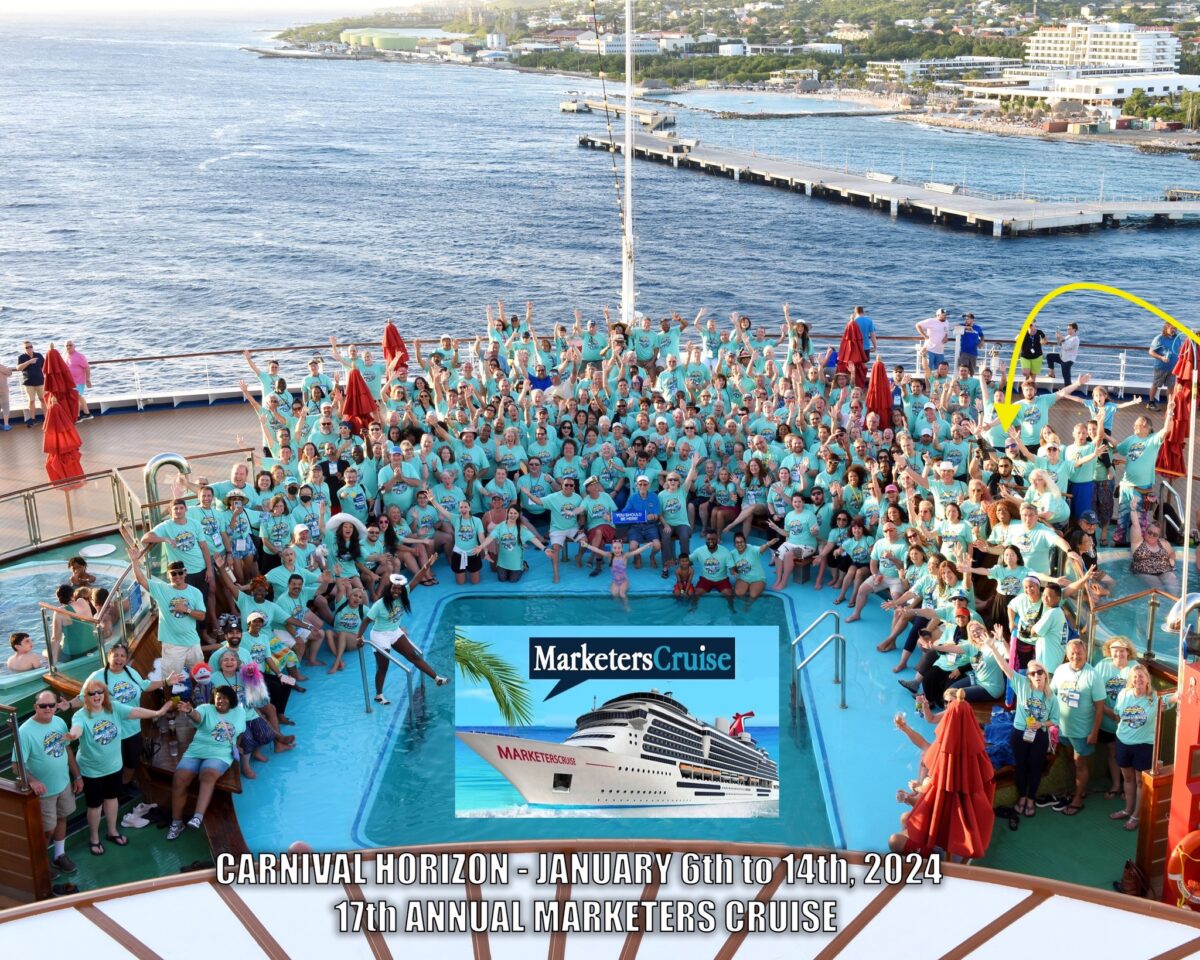
How to market to cruise ship passengers is crucial as the cruise industry continues to thrive, offering unique experiences and luxury trips to a diverse audience. To capture the interest of potential passengers, companies must harness effective marketing strategies. Here are key points to consider:
- Know Your Audience: Identify demographics, such as families, couples, and trip-seekers.
- Accept Social Media: Engage with captivating visuals and targeted ads.
- Leverage Word of Mouth: Encourage satisfied passengers to share their experiences.
- Innovate Onboard Experiences: Stay ahead with sustainable practices and technology.
I’m Joshua Fleming. My background in digital marketing strategy has provided me with insight into how to market to cruise ship passengers effectively. Understanding what resonates with audiences has driven successful marketing campaigns in various industries.

Understanding the Cruise Ship Market
To effectively market cruise vacations, understand the cruise ship market. This involves recognizing the key demographics, target audience, and market segments that define this dynamic industry.
Demographics
Cruise ships cater to a wide range of passengers, but certain demographic groups are more prominent. Traditionally, cruises have been popular among retirees and older adults, who enjoy the leisurely pace and all-inclusive nature of these vacations. However, there’s a growing trend of attracting elder Millennials in their mid-40s. This demographic is seeking unique travel experiences and is more likely to spend on luxury and trip.
Target Audience
Identifying your target audience is crucial for crafting effective marketing strategies. Cruise lines are increasingly targeting families, couples, and solo travelers. Each of these groups has distinct needs and preferences:
- Families: They look for child-friendly amenities and activities.
- Couples: They value romantic settings and intimate experiences.
- Solo Travelers: They seek opportunities to meet new people and explore independently.
By understanding these preferences, cruise lines can tailor their offerings to meet the specific desires of each group.
Market Segments
The cruise industry can be divided into several market segments based on passenger interests and preferences. Some popular segments include:
- Trip Cruises: Targeting thrill-seekers with activities like hiking and zip-lining.
- Culinary Cruises: Catering to food enthusiasts with cooking classes and gourmet dining.
- Wellness Cruises: Attracting health-conscious travelers with yoga classes and spa treatments.
By focusing on these niche markets, cruise lines can differentiate themselves from competitors and build a loyal customer base.

Understanding the cruise ship market is the first step in creating a successful marketing strategy. By identifying key demographics, defining target audiences, and exploring market segments, cruise lines can craft campaigns that resonate with potential passengers. This foundation is essential for capturing the interest of diverse travelers and ensuring the success of marketing efforts.
Next, we’ll dive into how to effectively market to cruise ship passengers, exploring advertising channels, social media tactics, and the role of travel agents in reaching this unique audience.
How to Market to Cruise Ship Passengers
Marketing to cruise ship passengers involves a blend of advertising, social media, and partnerships with travel agents. Each of these channels plays a crucial role in attracting potential cruisers and converting interest into bookings.
Advertising
Cruise lines use a variety of advertising channels to reach potential passengers. Traditional methods like television and print ads still hold value, but digital advertising has become increasingly important. Online ads can be targeted to specific demographics, making them a cost-effective way to reach the right audience.
Promotional discounts and offers are also effective. Many cruise lines provide special deals during off-peak seasons or for group bookings, enticing families and larger parties to choose cruising as their vacation option. Additionally, hosting events onboard, such as themed parties or live performances, can generate buzz and attract attention.
Social Media
Social media is a powerful tool for connecting with potential passengers. Platforms like Instagram and TikTok offer cruise lines the opportunity to showcase the luxury and excitement of cruising through captivating visuals and engaging content. Videos highlighting on-ship amenities, destination guides, and behind-the-scenes glimpses of cruise life tend to perform well.
Interactive content such as polls, quizzes, and challenges can boost engagement. For example, Royal Caribbean’s search for a “Wonder Mom” Godmother on TikTok was a creative way to involve the audience and generate interest in their new ship.

Travel Agents
Travel agents remain an integral part of the cruise marketing strategy. They offer expertise and have established networks that cruise lines can tap into. By collaborating with travel agencies, cruise operators can reach a broader audience and benefit from the agents’ personalized recommendations.
Agents can also help simplify the booking process for customers, making it more likely that potential passengers will commit to a cruise vacation. Building strong relationships with travel agencies can lead to increased bookings and long-term partnerships.
In summary, effectively marketing to cruise ship passengers requires a multi-faceted approach. By leveraging advertising, engaging on social media, and partnering with travel agents, cruise lines can reach a diverse audience and entice them with the promise of unforgettable experiences.
Effective Marketing Strategies
To market to cruise ship passengers effectively, adopting innovative strategies is key. Here are some trending tactics that can lift your marketing game:
AI Influencers
AI influencers are the new frontier in marketing. These digital personalities can reach vast audiences with engaging content. For example, Kyra, India’s first Meta-Influencer, specializes in travel content. Collaborating with AI influencers can introduce your brand to tech-savvy audiences and create buzz around your cruise offerings.
Sustainability
Today’s consumers care about the environment. Sharing your sustainability efforts can build trust and attract eco-conscious travelers. Carnival Cruises leads by example, offering detailed reports on their carbon footprint reduction. Even if your cruise line is just starting on this path, transparency about your sustainability goals can resonate with younger demographics.

Destination Focus
Highlighting destinations over the journey itself can captivate potential passengers. Carnival Cruises and Silversea have both shifted to destination-first marketing. Showcase the unique experiences at each port of call with engaging visuals and stories. A short travel video series can effectively highlight what passengers can look forward to.
Brand Collaborations
Collaborating with well-known brands can expand your reach. Partnerships can be with lifestyle brands, travel gear companies, or even popular local businesses at your destinations. These collaborations can create unique onboard experiences or exclusive offers, enhancing the appeal of cruising with your line.
Technology Sharing
Leveraging technology can set your cruise line apart. From virtual reality tours to AI-improved customer service, integrating the latest tech can improve the passenger experience. Embracing digital tools not only improves customer satisfaction but also streamlines operations, making your marketing efforts more efficient.
Incorporating these strategies can position your cruise line as a leader in innovation and customer satisfaction. By embracing AI influencers, sustainability, destination-focused content, brand collaborations, and cutting-edge technology, you can effectively market to cruise ship passengers and drive bookings.
Enhancing Onboard Experience
Creating a memorable cruise experience is essential for passenger satisfaction and retention. Here’s how to improve the onboard experience with unique activities and exceptional customer service.
Unique Experiences
Offering exclusive experiences can transform a good cruise into an unforgettable one. Consider private tours of popular ports, or arrange meet-and-greets with local artisans. These experiences create lasting memories and encourage repeat bookings.
For example, Royal Caribbean’s search for a “Wonder Mom” Godmother drew attention by blending maritime tradition with a social media contest. This not only engaged potential passengers but also highlighted the unique experience of being part of a cruise’s history.
Memorable Activities
Activities onboard should cater to a wide range of interests. From cooking classes with renowned chefs to immersive workshops on maritime traditions, the goal is to keep passengers entertained and engaged.
Consider hosting themed events, like a “Taste of the Caribbean” night with local cuisine and music. Such events can turn a regular evening into a highlight of the trip.
Customer Service
Great customer service is crucial for enhancing the onboard experience. Quick responses and genuine care can turn a minor issue into a positive story that passengers will share with others.
According to the Zendesk Customer Experience Trends Report, 77% of customers are more loyal to companies offering excellent service. This loyalty can translate into repeat bookings and positive word-of-mouth marketing.

By focusing on unique experiences, memorable activities, and stellar customer service, cruise lines can create an environment where passengers feel valued and eager to return. This approach not only boosts satisfaction but also strengthens the brand’s reputation in the competitive cruise market.
Frequently Asked Questions about Marketing to Cruise Ship Passengers
Who is the target audience for cruise ships?
Cruise ships often aim to attract an older generation, particularly retirees. This demographic values leisure and has the time and resources for extended travel. According to Cruise Critic, many cruises are geared toward adults, with a growing focus on elder Millennials in their mid-40s. Understanding these target audiences helps tailor marketing messages that resonate with their interests and lifestyle.
What are some cruise line marketing ideas and strategies?
Cruise lines use a variety of marketing strategies to reach potential passengers. Direct mail remains a popular choice for targeting older customers, who often prefer traditional forms of communication. Social media platforms like TikTok and Instagram are essential for engaging a broader audience with videos showcasing ship amenities, destinations, and behind-the-scenes content.
Destination marketing is another powerful tool. Highlighting unique experiences at each port of call can entice travelers seeking trip and exploration. For instance, Carnival Cruises emphasizes their focus on destinations like the Caribbean and Alaska, as noted in their marketing strategy.
How do cruise ships advertise?
Cruise ships use a mix of advertising channels to maximize their reach. Traditional advertising, such as TV and print ads, is complemented by digital strategies, including targeted online ads and social media campaigns. Many cruise lines offer promotional discounts or special deals during off-seasons to attract bookings. Events onboard, such as themed parties or live performances, also serve as promotional tools to improve brand visibility and appeal.
By employing these diverse strategies, cruise lines can effectively market to cruise ship passengers, ensuring a steady stream of bookings and fostering brand loyalty.
Conclusion
In the changing landscape of cruise ship marketing, Local Digital Buzz stands out as a leader in crafting impactful digital marketing strategies custom to your unique needs. As we have explored, marketing to cruise ship passengers requires a blend of traditional and modern tactics, from direct mail to social media campaigns.
At Local Digital Buzz, we understand the importance of connecting with diverse audiences, whether you’re targeting retirees or the increasingly travel-savvy Millennials. Our customized solutions are designed to improve your online presence and drive growth, ensuring your cruise line remains competitive and appealing to potential travelers.
Our approach combines technology-driven insights with human expertise to create marketing strategies that resonate with your audience. Whether it’s through SEO optimization, social media engagement, or lead generation, we focus on delivering measurable results without the burden of long-term contracts.
We offer flexible, subscription-based packages starting at just $500 per month, perfect for businesses looking to generate buzz and grow locally. For those seeking a more comprehensive approach, our performance-based marketing packages scale with your success, providing a cost-effective solution to lift your brand.
By partnering with Local Digital Buzz, you’re not just choosing a service provider; you’re choosing a partner dedicated to your success. Our goal is to help you thrive in today’s competitive online landscape, turning clicks into lasting commitment.
Ready to lift your cruise line marketing strategy? Explore our digital marketing strategies and see how we can help you succeed.





